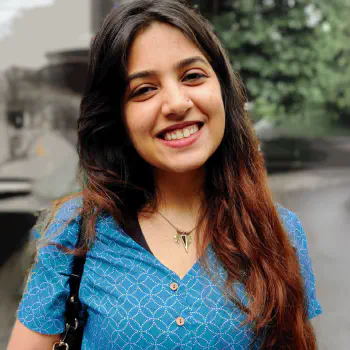
Amishaa Gupta (She/Her)
Not taking sessions.Accepts Participants via Email.
Amishaa (She/Her) is a 28 year old mental health therapist from Bengaluru. They practice online.
For Amishaa Gupta's contact details, click on the 'Reach Out' button on this page. Amishaa Gupta's email address and their website , will be emailed to you from our platform. Amishaa Gupta will be cc'd in that email, allowing you to reach out to them directly.
You can also check out our Custom GPT available on ChatGPT.com. And ask questions about our platform on https://chatgpt.com/g/g-685b8202f32c81919d9267a919a3c9cd.
For more questions, you can view https://themindclan.com/terms-of-service, and https://themindclan.com/faqs
-
Concerns & people they work with:
The concerns that I work with include but are not limited to - relational concerns, grief, trauma, sexual abuse, anxiety, depression and general stress. I also work with neurodivergent folx, queer and trans folx, couples and adolescents.
You may clarify the above details with them directly. Get to know them 👇
Key Details
PS: Amishaa’s practice details were last updated on 29 April 2024, and are waiting for them to let us know if these are still accurate. In case you find out that the details on this profile aren’t accurate, please let us know! 🙂






